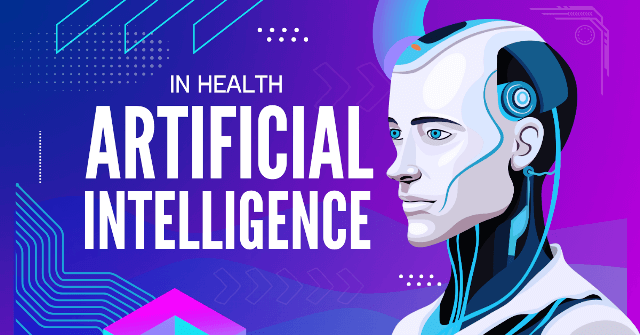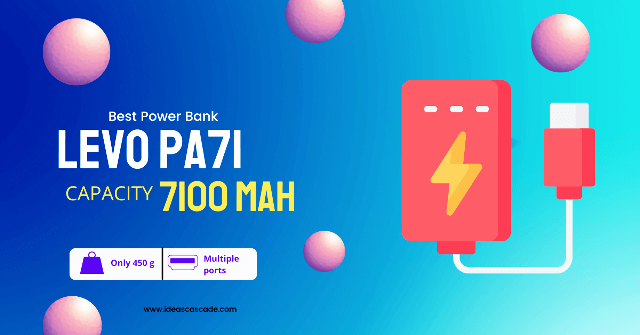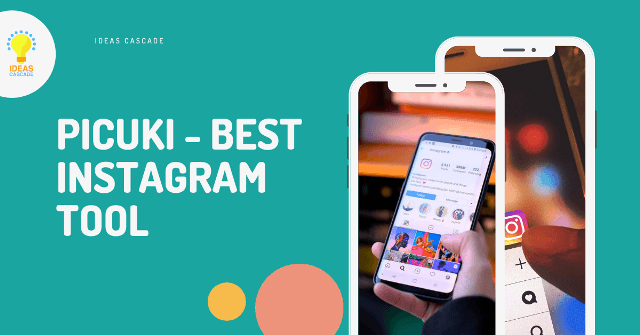Artificial intelligence (AI) has already reformed so much of the world as we know it: automating systems; changing the way we make decisions — as well as the process of generating those decisions.
It’s also redefining and reconfiguring some of the most significant and personal aspects of our world – healthcare. Its use is to diagnose, create personalized regimens and even predict patient survivability.
Table of Contents
In this article, I’ll share with you the many forms of AI that are reshaping healthcare, some of its applications, benefits to the area, and what the future holds.
How is AI used in Health?
Artificial intelligence (AI) automates complex procedures and imitates human intelligence. As machines animate more human abilities they will out act in numerous ways striking by speedy exploring and dissecting gigantic measures of enormous information to recognize oddities, examples, and patterns.
Unsurprisingly, AI’s potential is vast in healthcare, where it can be applied in enhancing a wide range of typical medical processes, from the diagnosis of diseases to figuring out the best treatment paths for patients suffering from serious ailments like cancer.
AI-enabled robotic surgical tech, for example, assists physicians in executing procedures by compensating for physical tremors and offering them real-time data during the operation.
Applications of AI in Healthcare
Artificial Intelligence, as a general term, encompasses several different but related processes. Here are some that are the most common:
- Machine Learning (ML) is an approach to teach algorithms executing tasks such as information classification and result prediction with data sets like medical records.
- Deep Learning is a subset of machine learning that creates neural networks performing more complicated tasks using larger data, training for longer periods, and having multiple layers of machine learning algorithms.
- Neural Language Processing (NLP) involves applying Machine learning (ML) to understand spoken and written human languages. NLP helps in comprehending published research, reports, notes as well as documentation used in medicine discipline.
- Robotic Process Automation (RPA) also known as Computer programs uses AI to automate administrative and clinical operations. Many hospitals use RPA so that they can improve both internal daily activities as well as patient experience.
Benefits of AI in Healthcare
Above applications using AI enhancements have several benefits, including:
- Improved diagnostic precision to find problems early and more accurately.
- Advanced data management guarantees that healthcare providers may quickly obtain pertinent data to make well-informed clinical judgments.
- Individualized treatment programs that include clinical, genetic, and lifestyle variables to provide more tailored and efficient care.
- Expedited drug discovery to find promising therapeutic options and shorten the time to market
- Improved predictive analytics for early intervention, illness outbreak prediction, and trend identification.
- Decreased expenses and increased administrative effectiveness for billing, processing claims, setting up appointments, and automating procedures.
- Improved patient accessibility via wearables and sensors, regardless of location.
- Increased patient involvement with apps that provide educational materials and recommendations for individualized care.
- Improved surgical accuracy with robotic equipment powered by AI that helps surgeons do operations with more precision and a lower chance of human mistakes.
Cons of using AI in Medical Profession
While AI has a lot to offer the healthcare industry, there are certain obstacles and some negative effects as well.
- Dangers to data security and privacy due to the production of enormous volumes of sensitive patient data.
- Fairness and bias issues with training data that might cause some demographic groups to be misdiagnosed, underdiagnosed, or treated unfairly.
- New legal and regulatory obstacles that need to be navigated through intricate regulatory systems.
- Problems with interoperability between new data platforms and current healthcare systems.
- The goal of accountability and reliability is to determine what or who is in charge when anything goes wrong.
- The public’s and healthcare professionals’ resistance to adoption stems from a lack of confidence in AI-generated advice.
- High implementation and development expenditures.
- A potential over-reliance on suggestions made by AI might impair healthcare practitioners’ judgment and critical thinking.
- Ethical issues that arise when AI-generated conclusions don’t align with the wishes of patients or their families.
- Data inaccuracies or incompleteness are problems with data quality.
- Potential dangers to cyber security include viruses, ransomware, data breaches, and invasions of privacy.
AI’s Prospects and Future in the Healthcare Sector:
AI offers chances to help lower human mistakes, support medical personnel and experts, and offer round-the-clock patient care. AI has the potential to be used much more in analyzing medical photos, X-rays, and scans, diagnosing medical issues, and developing treatment plans as these tools continue to advance.
AI applications (and, perhaps, applications not yet thought of) will continue to assist in simplifying a variety of jobs, from answering phones to analyzing patterns in population health. For example, more of the labor done by staff workers and clinicians may be automated or enhanced by future AI solutions. This will allow people to devote more time to providing face-to-face professional treatment that is more efficient and humane.
Is there any AI-assisted Medical Equipment?
Certainly! Here are several examples of AI-operated medical tools used in the field:
IBM Watson for Oncology: A mental PC framework that breaks down quiet information, clinical writing, and different wellsprings of information to help doctors in pursuing clinical therapy choices for malignant growth patients.
IDx-DR: An AI-based framework that diagnoses the signs of diabetic retinopathy, one of the most widely recognized reasons for visual impairment by assessing pictures of the retina.
Deep Mind Health’s Streams: This smartphone application runs on an artificial intelligence platform that examines patient data and alerts clinicians to potential instances of AKI (Acute Kidney Injury) sooner.
The LivingCor KardiaMobile is a man-made device that can be connected to a cell phone to quickly take electrocardiogram (ECG) readings in order to identify abnormal heart rhythms like atrial fibrillation.
How Can AI be Used to Improve Healthcare?
AI has a wide range of possibilities for improving health.
- Diagnostics and Treatment: Artificial intelligence algorithms are capable of interpreting medical information including laboratory tests, images, patient records to enable doctors diagnose diseases correctly and suggest personalized treatment options. This may result in improved patient outcomes, earlier detection and more effective treatments.
- Predictive Analysis: AI can predict how patients will respond to treatment, how diseases will progress and what the ultimate health outcome will be based on comprehensive data sets. For clinicians working with such information, they would be able to better assess at-risk patients early intervention and preventive measures.
- Remote Monitoring & Telemedicine: Wearables using artificial intelligence capabilities as well as real time remote monitoring programs that can monitor patient vital signs round the clock such as blood pressure levels, glucose levels ,heart beats among others . Hence this reduces hospital admissions as well as healthcare costs since doctors can remotely keep watch over their patients’ cases and take corrective actions when needed.
- Drug Discovery & Development: These systems can predict whether drug candidates are safe or not, identify targets in diseases and perform analysis on biological data using machine learning techniques. Thus this process is cost efficient.
- Drug Development; Artificial intelligence systems can predict the safety and effectiveness of drugs, identify disease targets and analyze data. This leads to cost savings, speeds up the discovery of drugs and increases the chances of developing a medication.
- Personalized Medicine; AI has the capability to analyze patient data, such as genetics, medical history and lifestyle factors in order to create customized treatment plans tailored to each patient’s characteristics. This approach helps minimize reactions and side effects while maximizing treatment effectiveness.
- Health Behavior Change; AI powered health coaching apps and virtual assistants can provide advice, motivational support and behavior change interventions to assist individuals in adopting lifestyles managing chronic conditions and adhering to treatment plans.
- Resource Operational Efficiency; Artificial intelligence can optimize the allocation of healthcare resources, like hospital beds, staff schedules and inventory management to reduce costs, enhance patient care quality and improve efficiency.
So, AI has the potential to revolutionize healthcare by improving patient outcomes, diagnostics, treatment and preventive measures and transforming healthcare delivery.
Conclusion
So , we can say that with the introduction of more imaginative and new age artificial intelligence apparatuses, medical services are further developed in the feeling of more mindfulness, productivity in conveying care , recognizable proof of creating entanglements, exact finding of illnesses quite a bit early, and latest methodologies for medications.
Frequently Asked Questions
Which job does AI play in healthcare?
Customized therapy arranging, predictive analytics, and investigation of clinical imaging are only a couple of the positions in medical care that artificial intelligence is used for.
What hindrance does AI execution in healthcare face?
Integration with existing health care systems and concerns about data privacy regularly compliance are obstacles to the use of AI in healthcare.
What are the best AI courses for health you should know in 2024?
Here are the top three AI courses you should know in 2024.
AI for Healthcare – Udacity
AI for Medicine Specialization- deeplearning.ai
AI in Healthcare specialization – Stanford University




you are truly a just right webmaster The site loading speed is incredible It kind of feels that youre doing any distinctive trick In addition The contents are masterwork you have done a great activity in this matter
Usually I do not read article on blogs however I would like to say that this writeup very compelled me to take a look at and do so Your writing taste has been amazed me Thanks quite nice post
Your posts in this blog really shine! Glad to gain some new insights, which I happen to also cover on my page.
For the reason that the admin of this site is working, no uncertainty very quickly it will be renowned, due to its quality contents.
Great information shared.. really enjoyed reading this post thank you author for sharing this post .. appreciated
continuously i used to read smaller posts that also clear their motive, and that is also happening with this post which I am reading at this time.
Greetings! Very useful advice in this particular article!
It is the little changes that produce the most significant changes.
Thanks a lot for sharing!
Saved as a favorite, I really like your site!
bookmarked!!, I really like your site!
My brother recommended I might like this blog.
He was totally right. This post actually made my day.
You cann’t imagine simply how much time I had spent for this info!
Thanks!
Thanks for sharing your thoughts on 1. Regards
Hello! I could have sworn I’ve visited your blog
before but after going through many of the posts I realized it’s new to me.
Regardless, I’m definitely pleased I discovered it and I’ll be book-marking it and checking back often!
It’s awesome for me to have a web page, which is helpful designed for
my knowledge. thanks admin
Hi to every body, it’s my first go to see of this web site; this website carries
remarkable and genuinely excellent data designed for visitors.
Nice post. I was checking continuously this weblog and I am inspired!
Very helpful information specially the ultimate part 🙂 I maintain such information a lot.
I used to be seeking this particular info for a very lengthy
time. Thank you and good luck.
Thanks for finally writing about > Artificial Intelligence has
great Impact in Health < Loved it!